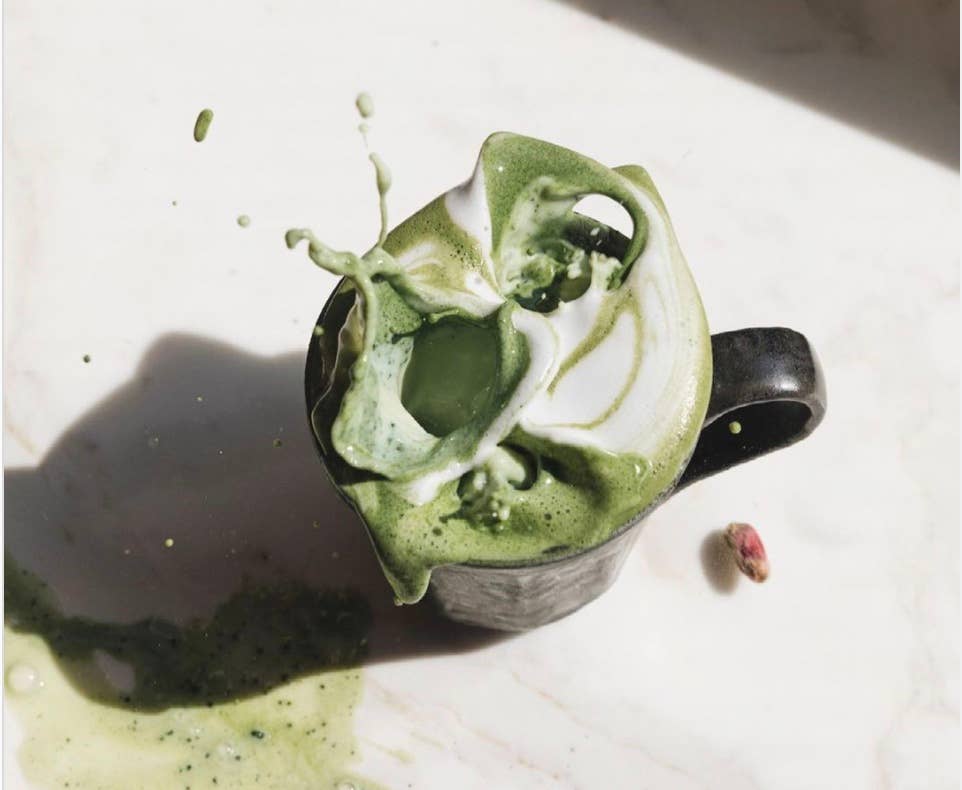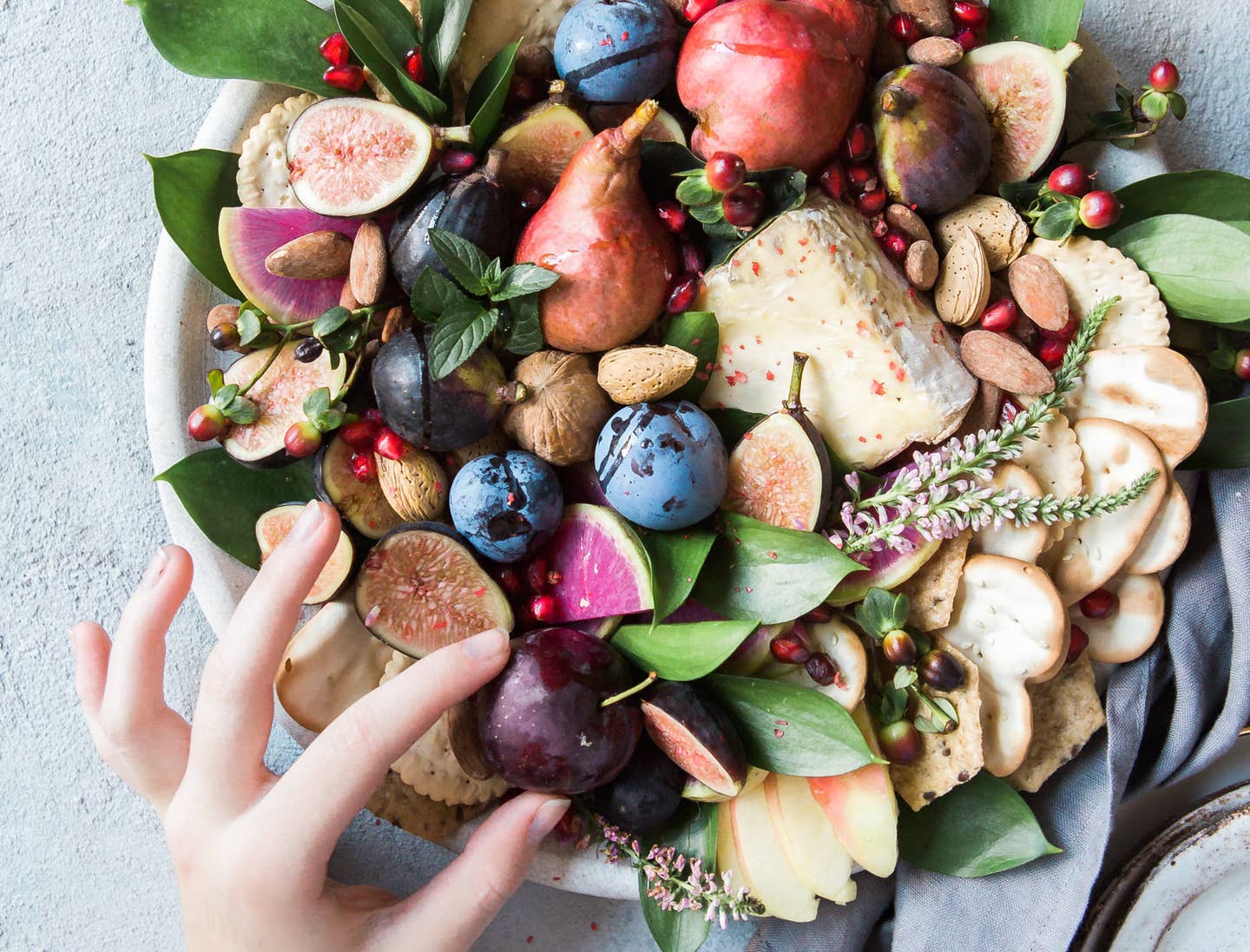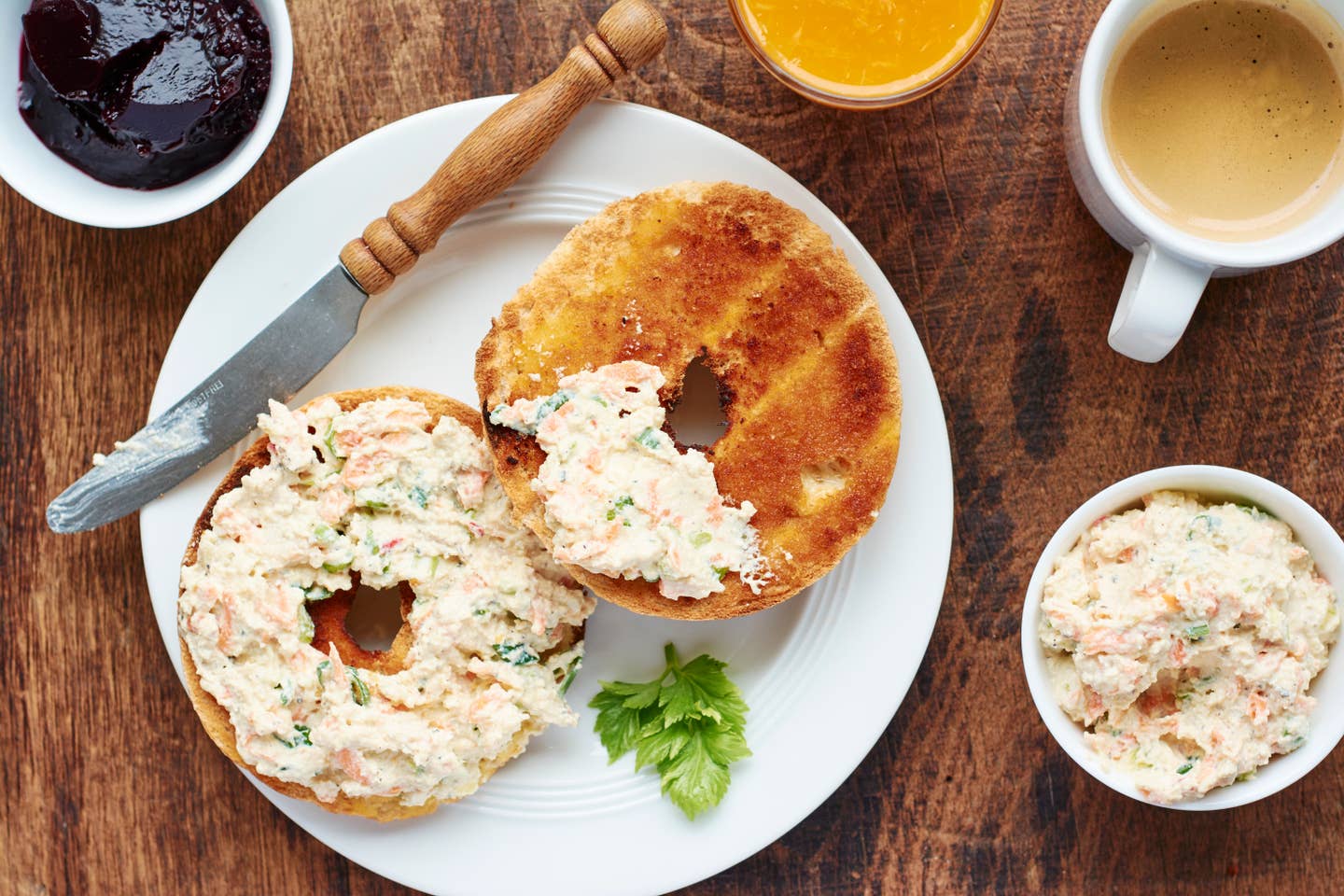
We Tried Pistachio Milk. Here’s Why It’s Better Than Other Plant Milks
Pistachio milk is having a moment. There's a reason that the non-dairy milk made from tiny little green nuts is gaining in popularity: It's packed with protein and fiber, has about the same number of calories as skim milk, but is perhaps the best non-dairy creamer you can find. Pistachio milk, when steamed, creates a thick, rich, frothy addition to coffee that has all the texture and taste of half and half, or a barista-style creamer, but with less saturated fat, carbs, and calories. Plus pistachio milk is friendlier to the environment than almond milk.
We put pistachio milk to the test, to see if it would hold up to our latte-loving standards when frothed and spooned onto our favorite Vente, then used it as our morning choice in cereal and even tried drinking it straight from the glass. Here's what we found out about the milk that is making the scene, and how it stacks up to oat milk and almond milk and all the other best-selling plant-based milks in just about every category, including price. Read on for our review on pistachio milk and when you should use it instead of your usual almond, oat, or another non-dairy creamer.
One note: We tried the chic brand, Táche, simply for the reason that our friend had bought a case of six (how they are sold online) and offered us the option to try one. Then we learned it was female-founded, by Roxana Saidi, who is of Middle Eastern descent and grew up with pistachios as a household staple. But Elmhurst 1925 makes it as well, and you can also make your own, though we don't guarantee your product will be as smooth or frothy as the kind sold in stores since they are careful to make sure no extra nibs of nuts makes it into the formula.
What does? Pistachios are grown for their taste and quality since according to the website, these nuts are like the grapes that make up your favorite wine: Where they are grown, including the water, the soil, and the sunlight, impacts what your pistachios ultimately taste like. So we can't vouch for your home-grown version, but here is what we thought of Táche's original unsweetened formula.
Is pistachio milk healthy?
Pistachios are popular not only because they are packed with protein and fiber, (6 grams of protein and 3 grams of fiber per ounce) but they contain micronutrients and must-have essential vitamins and minerals that include Calcium and zinc, which make this nut milk well worth the 92 calories in a cup.
Pistachio milk has more potassium than other non-dairy milk, and it is also a great source of antioxidants, phytosterols, and heart-healthy fats. Unlike most oat milk, Táche contains no added vegetable or canola oils, which can add up. According to the website, "just one serving of oat milk with rapeseed (i.e. canola oil) is the equivalent of ingesting about the same amount of oil used for frying a medium order of fries." Not so with pistachio milk, which has fewer calories, sugar, and carbs than oat milk.
Why is pistachio milk popular?
Pistachio milk has elbowed its way into the top milk trends of our time, nudging over oat and almond milk, and putting a new lactose-free dairy-free, and cholesterol-free option on the coffee creamer counter. One reason: It froths! In our brief test, pistachio milk steamed up smoothly and frothed as well as dairy milk or cream when added to coffee and matcha drinks. We would go as far as to say that pistachio milk is the best non-dairy creamer around.
Is pistachio milk expensive?
This is where pistachio milk falls down in comparison with other options. While it's one of the richest, most luxurious plant-based milks around, it's also the priciest. While you may have some price aversion (it sells for about $7.80 for a 32-ounce carton), keep in mind that it has a long shelf life. If you buy a case of six cartons, they will last for up to 12 months unrefrigerated so long as they are not in a storage area that gets hotter than 88 degrees Fahrenheit or colder than freezing. Once you open the carton, it will last for up to 10 days in the fridge or longer but the taste may start to turn (though it is still safe).
One reason it is so expensive is the same reason your favorite shelled pistachios are expensive to buy in the store, according to experts. "The pistachio cultivation process is lengthy because the trees require a specific climate and they take a long time to grow, which makes pistachio milk more expensive for the consumer," Kylene Bogden, R.D. told Real Simple in an interview.
Is pistachio milk good for the environment?
Absolutely. If you usually choose almond milk, but care about which plant-based milk is best for the environment, you need to think about the fact that pistachios require half as much water to grow as almonds, and are on a par with oats as environmentally friendly crops.
One ounce of almonds requires about 97 gallons of water to grow, with most US almonds coming from drought-stricken California. Pistachios need about 75 percent less water to produce, according to research by UNESCO. With a shelf life of 12 months and recyclable packaging, pistachio milk also lasts long enough to be a pantry staple, when you order a case of six, lowering your trucking and shipping footprint.
Is it easy to make your own pistachio milk?
Big yes. So simple, but it takes soaking the nuts overnight. All you need to do is blend the mushy nuts and water, then strain the pulp off by running the mixture through a cheesecloth. It's a bit of a messy business, and your yield (just a few ounces) may not make it worth the trouble, especially now that there are excellent store-bought options. Once upon a time, the best way to get pistachio milk was to make it yourself. While this results in pistachio milk, it may be that in this instance, homemade does not equal superior. I tried it and first of all my pistachios had been salted, so the milk was savory. And perhaps I have a terrible old basic blender, but there was something lacking in the uniformity, richness, and overall smoothness of the homemade concoction, and I would advise sticking with store-bought blended options, especially if what you're looking for is froth-ability.
Who makes pistachio milk?
Both Táche ($7.79) and Elmhurst ($6.49) make neutral-tasting pistachio milk that you can either sweeten with maple sugar or make savory by adding a dash of salt. The Elmhurst blend is tailored to be added to coffee, since its Barista Edition comes in a variety of flavors suitable for seasonal coffees, including their pistachio milk option.
If making a professional grade coffee is your jam, add a light sprinkling of pistachio nuts on top of the foam, and then take your picture and post it so your friends will know you could, if necessary, always get work as a barista.
Does pistachio milk foam?
Like a champ. That's one of the biggest selling points of pistachio milk. Other than the nutrition benefits. This stuff foams like you work at Starbucks and were trained to make adorable leaf or heart patterns on the top of your latte. Play with it. Like a bubble bath, for your chai latte.
What happens when you drink it?
How much do you like pistachios? I myself eat them by the fistful. The only reason I keep the shelled variety in my cabinet is to slow myself down from inhaling a cup or two a day. That's the downside of loving pistachios so much. However, if you sip this as a milk alternative, or add it to a smoothie, the subtle taste just comes through like a hint or memory: Your brain may acknowledge it but your tastebuds won't feel overwhelmed.
Is pistachio milk good for cereal?
Yes. When you add pistachio milk to your favorite breakfast cereal, it adds a little depth to the otherwise light, bran-flavored flakes. Or add it to Grape Nuts, which is also fiber and protein-filled, and you'll make them taste even better. Or pour over your favorite granola, since the blend of the pistachio taste and the crunchy clusters make for a nutty, home-grown blend of flavors.
Bottom Line: Pistacho milk can replace all your plant-based needs
Foam it, pour it, or use it as a baking ingredient. Pistachio milk is better for the environment, and for you.
For more product recommendations, check out The Beet's plant-based product reviews.
More From The Beet






